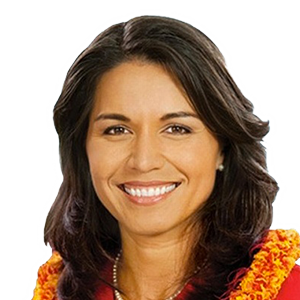Washington’s New Lock-Step March Of Folly. “Escalation in Syria, Take-down of Iran, Showdown with Nuclear-armed Russia”…

Confident in a Hillary Clinton victory, Washington’s foreign policy elite is readying plans for more warfare in Syria and more confrontations with nuclear-armed Russia, an across-the-spectrum “group think” that risks life on the planet, says Robert Parry.
As polls show Hillary Clinton closing in on victory, Official Washington’s neoconservative (and liberal-hawk) foreign policy establishment is rubbing its hands in anticipation of more war and more strife, including a U.S. military escalation in Syria, a take-down of Iran, and a showdown with nuclear-armed Russia.
What is perhaps most alarming about this new “group think” is that there doesn’t appear to be any significant resistance to the expectation that President Hillary Clinton will unleash these neocon/liberal-hawk forces of intervention that President Barack Obama has somewhat restrained.
Assuming Donald Trump’s defeat – increasingly seen as a foregone conclusion – the Republican leadership would mostly be in sync with Clinton if she adopts a hawkish foreign policy similar to what was pursued by President George W. Bush. Meanwhile, most Democrats would be hesitant to challenge their party’s new president.
The only potential option to constrain the hawkish Clinton would be the emergence of a “peace” wing of the Democratic Party, possibly aligned with Republican anti-interventionists. But that possibility remains problematic especially since those two political elements have major policy disagreements on a wide variety of other topics.
There also isn’t an obvious individual for the peace factions to organize around. Sen. Bernie Sanders, who mildly criticized Clinton’s advocacy of “regime change” operations during the primary campaign, is 75 years old and isn’t particularly known for his stands on foreign policy issues.
If Trump loses, the bombastic real-estate mogul would likely be a spent political force, possibly retreating into the paranoid “alt-right” world of conspiracy theories. Even now, his dovish objection to confronting Russia has been undermined by his tendency to speak carelessly about other national security topics, such as torture, terrorism and nuclear weapons.
One potential leader of a peace movement would be Rep. Tulsi Gabbard, D-Hawaii, (image left below) a 35-year-old military veteran who is one of the few members of Congress to offer an insightful and courageous critique of the dangers from an interventionist foreign policy. But Gabbard would be putting her promising political career at risk if she challenged a sitting Democratic president, especially early in Clinton’s White House term.
Yet, without a modern-day Eugene McCarthy (the anti-Vietnam War Democrat who took on President Lyndon Johnson in 1968) to rally an anti-war movement from inside the Democratic Party, it is hard to imagine how significant political pressure could be put on a President Hillary Clinton. Virtually the entire mainstream U.S. media (and much of the progressive media) are onboard for a U.S. “regime change” operation in Syria and for getting tough with Russian President Vladimir Putin.
Not Thought Through
These “group thinks” on Syria and Russia, like previous ones on Iraq and Libya, have not been thought through, but are driven instead by emotional appeals – photos of wounded children in Syria and animosity toward Putin for not wearing a shirt and not bowing to U.S. global supremacy. As with Iraq in 2003 and Libya in 2011, there is little consideration about what might follow a successful “regime change” scenario in Syria or Russia.
In Syria, a “no-fly zone” destroying Syria’s air force and air defenses could pave the way for a victory by Al Qaeda’s recently renamed Nusra Front and/or Al Qaeda’s spinoff, the Islamic State. How letting major terrorist groups control Damascus would be good for either the Syrian people or the United States gets barely mentioned.
The dreamy thinking is that somehow the hard-to-find “moderate” rebels – sometimes called the “unicorns” – would prevail, even though they have existed mostly as cut-outs and conduits so Al Qaeda and its allies can secure advanced U.S. weapons to use for killing Syrian soldiers.
Yet, even more dangerous is the already-launched destabilization campaign against nuclear-armed Russia, a policy that may feel-good because we’re taught to despise Vladimir Putin. But this latest neocon/liberal-hawk “regime change” scheme — even if it somehow were “successful” — is not likely to install in the Kremlin one of the U.S.-favored “liberals” who would allow the resumption of the 1990s-era plundering of Russia’s wealth.
Far more likely, an angry Russian population would go for a much-harder-line nationalist than Putin, someone who might see nuclear weapons as the only way to protect Mother Russia from another raping by the West. It’s not the cold-blooded Putin who should scare Americans, but the hot-headed guy next in line.
But none of these downsides – not even the existential downside of nuclear annihilation – is allowed to be discussed among Official Washington’s foreign policy elites. It’s all about giving Bashar al-Assad the “Gaddafi treatment” in Syria, punishing Iran even if that might cause its leaders to renounce the nuclear-arms agreement, and muscling NATO forces up to Russia’s borders and making the Russian economy scream.
And, behind these policies are some of the most skilled propagandists in the world. They are playing much of the U.S. population – and surely the U.S. media – like a fiddle.
Lock-Step Consensus
The propaganda campaign is driven by a consensus among the major think tanks of Official Washington, where there is near universal support for Hillary Clinton, not because they all particularly like her, but because she has signaled a return to neocon/liberal-hawk strategies.
As Greg Jaffe wrote for the neocon-dominated Washington Post on Friday,
“In the rarefied world of the Washington foreign policy establishment, President Obama’s departure from the White House — and the possible return of a more conventional and hawkish Hillary Clinton — is being met with quiet relief.
“The Republicans and Democrats who make up the foreign policy elite are laying the groundwork for a more assertive American foreign policy, via a flurry of reports shaped by officials who are likely to play senior roles in a potential Clinton White House.
“It is not unusual for Washington’s establishment to launch major studies in the final months of an administration to correct the perceived mistakes of a president or influence his successor. But the bipartisan nature of the recent recommendations, coming at a time when the country has never been more polarized, reflects a remarkable consensus among the foreign policy elite.
“This consensus is driven by a broad-based backlash against a president who has repeatedly stressed the dangers of overreach and the need for restraint, especially in the Middle East. … Taken together, the studies and reports call for more-aggressive American action to constrain Iran, rein in the chaos in the Middle East and check Russia in Europe.”
One of the lead organizations revving up these military adventures and also counting on a big boost in military spending under President Clinton-45 is the Atlantic Council, a think tank associated with NATO that has been pushing for a major confrontation with nuclear-armed Russia.
Jaffe quotes former Secretary of State Madeleine Albright, who is leading the Atlantic Council’s bipartisan Mideast team as saying about Syria:
“The immediate thing is to do something to alleviate the horrors that are being visited on the population. … We do think there needs to be more American action — not ground forces but some additional help in terms of the military aspect.” (This is same “humanitarian” Albright who – in responding to a United Nations report that U.S. economic sanctions on Iraq in the 1990s had killed a half million Iraqi children – coldly said, “we think the price is worth it.”)
One of Albright’s partners on the Atlantic Council’s report, Bush’s last National Security Advisor Stephen Hadley, added that if Assad continues to bomb civilians, the United States should strongly consider “using standoff weapons, like cruise missiles, to neutralize his air force so that he cannot fly.”
The plans call for “safe zones” where Syrian rebels can base themselves behind U.S. military protection, allowing them to strike Syrian government forces but preventing the Syrian government from striking back. Little attention is paid to the fact that the so-called “moderate” rebels have refused to separate themselves from Al Qaeda’s forces who are in command of the rebel movement in east Aleppo and other urban areas.
As journalist/historian Gareth Porter has written: “Information from a wide range of sources, including some of those the United States has been explicitly supporting, makes it clear that every armed anti-Assad organization unit in those provinces [of Idlib and Aleppo] is engaged in a military structure controlled by [Al Qaeda’s] Nusra militants. All of these rebel groups fight alongside the Nusra Front and coordinate their military activities with it. …
“At least since 2014 the Obama administration has armed a number of Syrian rebel groups even though it knew the groups were coordinating closely with the Nusra Front, which was simultaneously getting arms from Turkey and Qatar.”
Ignoring the Masses
It also doesn’t seem to matter to these elites that many American commoners are fed up with these costly and bloody “regime change” schemes. As Hadley told the Post’s Jaffe, “Everyone has kind of given up on the Middle East. We have been at it for 15 years, and a lot of Americans think it is hopeless. … We think it is not.”
But it is not just the Republican neocons and old Democratic hawks who are determined to whip the American people into line behind more war. As Jaffe wrote, “A similar sentiment animates the left-leaning Center for American Progress’s report, which calls for more military action to counter Iranian aggression, more dialogue with the United States’ Arab allies and more support for economic and human rights reform in the region.”
These “liberal hawks” are enthused that now almost the entire foreign policy elite of Official Washington is singing from the same sheet of martial music. There is none of the discord that surrounded Bush’s war in Iraq last decade.
As Brian Katulis, a senior Middle East analyst at the Center for American Progress, said, “The dynamic is totally different from what I saw a decade ago.” He added that the current focus from all sides is on rebuilding a more muscular and more “centrist internationalism.”
In other words, the Iraq War “group think” that enveloped Official Washington before that catastrophe wasn’t total enough. Now, there is almost a totalitarian feel about the way the foreign policy elites, coordinating with the major U.S. news media, are marching the American people toward possibly even worse disasters.
No serious dissent is allowed; no contrarian thoughts expressed; no thinking through where the schemes might end up – unless you want to be marginalized as an Assad “apologist” or a Putin “puppet.” And right now, there doesn’t seem to be any practical way to stop this new march of folly.
Investigative reporter Robert Parry broke many of the Iran-Contra stories for The Associated Press and Newsweek in the 1980s. You can buy his latest book, America’s Stolen Narrative, either in print here or as an e-book (from Amazon and barnesandnoble.com).





